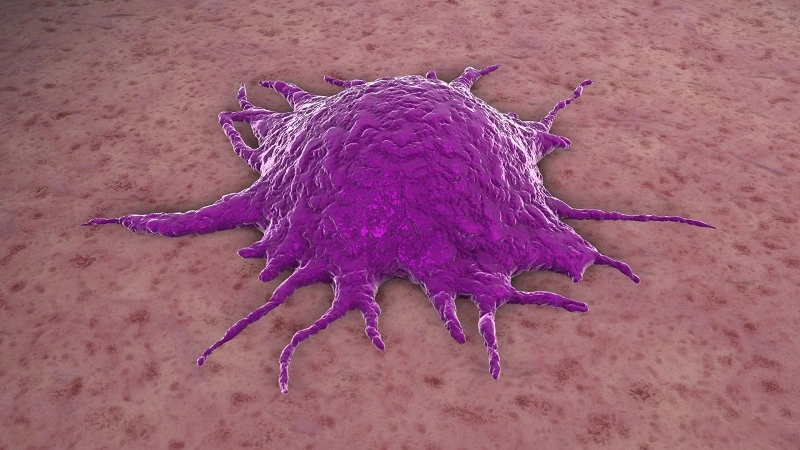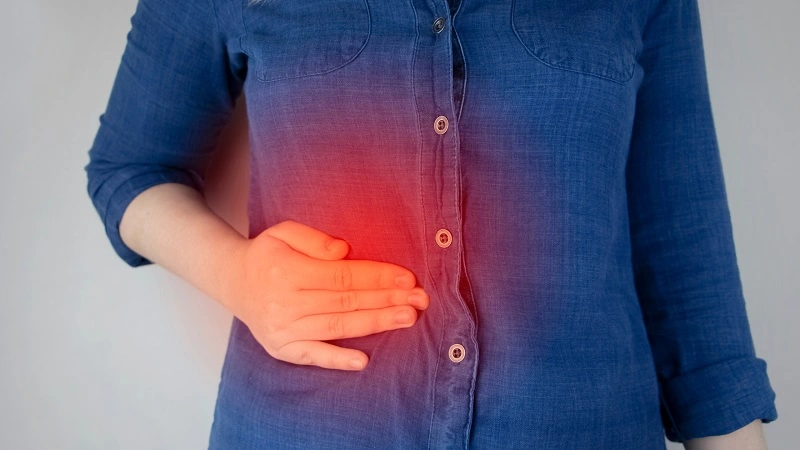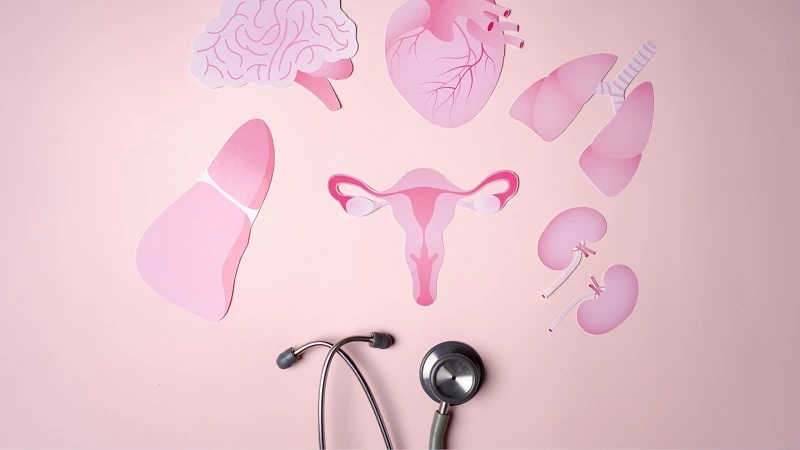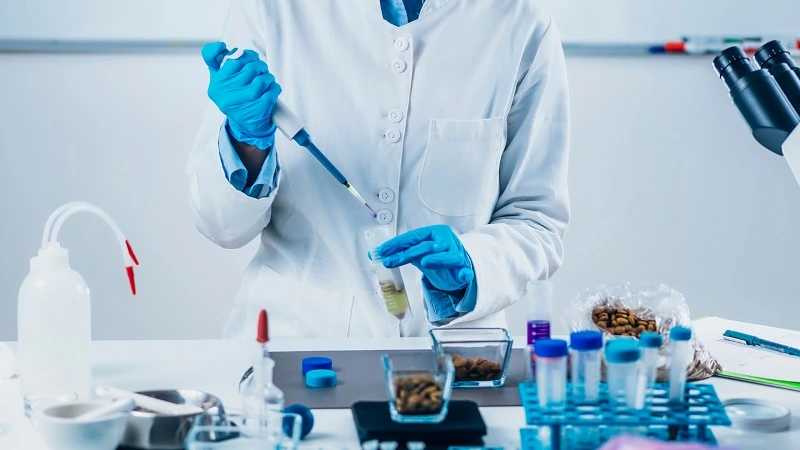Ovarian cysts are fluid-filled sacs that develop in a woman’s ovaries. These cysts can range in size from small, pea-sized growths to larger cysts that can measure several centimeters in diameter. Hormonal imbalances occur when there is an unequal distribution of hormones within the body, which can cause various symptoms and health conditions. But can ovarian cyst cause hormonal imbalance? Let’s find an answer.
Ovarian cysts can affect the balance of hormones such as estrogen, progesterone, and testosterone, leading to symptoms such as irregular menstrual cycles, mood swings, and changes in appetite and energy levels. Therefore, it is important to monitor and treat ovarian cysts to maintain hormonal balance and overall health.
In this article, we will discuss the relationship between ovarian cysts and hormonal imbalances, including the causes, symptoms, and treatments available. By understanding this connection, women can take proactive steps to maintain their hormonal balance and improve their overall health and well-being.
Overview of Ovarian Cysts
Ovarian cysts are fluid-filled sacs that can develop in the ovaries. They are a common occurrence in women and can range in size from small and benign to large and potentially cancerous. Ovarian cysts can have a significant impact on a woman’s health and hormonal balance, so it is important to understand their causes, symptoms, and treatments.
Causes of Ovarian Cysts
There are several causes of ovarian cysts, including:
- Functional cysts: These are the most common type of ovarian cysts and are usually benign. They are formed as a result of the normal function of the ovaries during the menstrual cycle.
- Pathological cysts: These cysts are abnormal and can be caused by conditions such as endometriosis, pelvic infection, or a previous injury to the ovary.
- Ovarian tumors: Ovarian cysts can also be caused by tumors, which can be benign (noncancerous) or malignant (cancerous).
Types of Ovarian Cysts
There are several different types of ovarian cysts, including:
- Follicular cysts: These cysts form when the follicle that contains the egg does not release the egg or ruptures.
- Luteal cysts: These cysts form when the corpus luteum, which is the sac that forms after the egg is released, fills with fluid.
- Endometrioid cysts: These cysts form as a result of endometrial tissue growing outside of the uterus.
- Dermoid cysts: These cysts are a type of benign tumor and contain various types of tissue, such as skin, hair, and sweat glands.

Symptoms of Ovarian Cysts
The symptoms of ovarian cysts can vary depending on the size and type of cyst. Some common symptoms include:
- Pelvic pain or discomfort
- Irregular menstrual cycles
- Heavy or painful periods
- Abnormal vaginal bleeding
- Bloating or pressure in the pelvic area
- Nausea or vomiting
- Pain during intercourse
- Urinary urgency or frequency
If a woman experiences any of these symptoms, it is important to seek medical attention as soon as possible.
Ovarian cysts can sometimes be diagnosed through ultrasound or other imaging tests. Treatment options may include medications, surgery, or a combination of both, depending on the type and severity of the cyst.

Hormonal Imbalance Caused by Ovarian Cysts
Ovarian cysts can have a significant impact on a woman’s hormonal balance, leading to various symptoms and health issues. Hormonal imbalances can be caused by several factors, including the type and size of the cyst, as well as other underlying medical conditions.
How Ovarian Cysts Impact Hormonal Balance
Ovarian cysts can impact a woman’s hormonal balance in several ways:
- Ovarian function: Ovarian cysts can affect the normal functioning of the ovaries, leading to hormonal imbalances. For example, functional cysts can cause the ovaries to produce higher levels of estrogen or progesterone, leading to hormonal imbalances.
- Tumors: Ovarian tumors can also cause hormonal imbalances by affecting the normal production of hormones. For example, some types of ovarian tumors can produce high levels of androgens, leading to conditions such as polycystic ovary syndrome (PCOS).
- Inflammation: Inflammation can also lead to hormonal imbalances, as it can cause the ovaries to produce higher levels of hormones. This can be especially problematic if the cyst is infected, as the infection can cause inflammation and further impact the hormonal balance.

Hormonal Imbalance Symptoms
Hormonal imbalances can cause a wide range of symptoms, including:
- Irregular menstrual cycles
- Heavy or painful periods
- Abnormal vaginal bleeding
- Mood swings
- Anxiety or depression
- Fatigue
- Insomnia
- Weight changes
- Acne or skin changes
- Hair loss or changes in hair growth

Common Hormonal Imbalances Associated with Ovarian Cysts
There are several common hormonal imbalances associated with ovarian cysts, including:
- Polycystic ovary syndrome (PCOS): PCOS is a hormonal disorder that can be caused by hormonal imbalances, including high levels of androgens. This can lead to the formation of multiple cysts in the ovaries and a wide range of symptoms.
- Estrogen dominance: High levels of estrogen can cause hormonal imbalances, leading to conditions such as heavy or painful periods and mood swings.
- Progesterone deficiency: Low levels of progesterone can also lead to hormonal imbalances, including irregular menstrual cycles and abnormal vaginal bleeding.
Diagnosis and Treatment of Ovarian Cysts and Hormonal Imbalance
Diagnosis
The diagnosis of ovarian cysts and hormonal imbalances begins with a thorough medical evaluation. This typically includes a physical exam, pelvic exam, and laboratory tests, such as blood tests and imaging studies.
- Physical Exam: A physical exam can help determine if a woman is experiencing symptoms related to ovarian cysts and hormonal imbalances, such as abdominal pain, bloating, and pelvic discomfort.
- Pelvic Exam: During a pelvic exam, the healthcare provider will examine the external and internal female reproductive organs to look for any signs of cysts or other anomalies.
- Blood Tests: Blood tests can help determine if a woman has hormonal imbalances, including high levels of estrogen or androgens, or low levels of progesterone.
- Imaging Studies: Imaging studies, such as ultrasound, can help diagnose ovarian cysts and determine their size and location.

Treatment
The treatment of ovarian cysts and hormonal imbalances will depend on several factors, including the type and size of the cyst, the woman’s age and overall health, and the severity of the symptoms.
- Observation: In some cases, small, functional cysts may not require treatment and can simply be monitored over time.
- Medications: Hormonal imbalances can be treated with medications, such as birth control pills or hormone replacement therapy.
- Surgery: In some cases, ovarian cysts may require surgical removal, especially if they are large or cause significant discomfort or pain.
- Lifestyle Changes: Making lifestyle changes, such as eating a balanced diet, engaging in regular physical activity, and managing stress, can also help improve hormonal imbalances.
Prevention and Management of Ovarian Cysts and Hormonal Imbalance
Prevention
While it is not possible to prevent all cases of ovarian cysts, there are steps women can take to reduce their risk and maintain their overall health. Some of these include:
- Maintaining a healthy weight: Excess weight can increase the risk of developing ovarian cysts and hormonal imbalances.
- Eating a balanced diet: A balanced diet rich in fruits, vegetables, and whole grains can help maintain overall health and reduce the risk of developing ovarian cysts.
- Engaging in regular physical activity: Regular physical activity can help maintain a healthy weight, improve overall health, and reduce the risk of developing ovarian cysts.
- Managing stress: Stress can contribute to hormonal imbalances and increase the risk of developing ovarian cysts. Women are encouraged to practice stress-management techniques, such as yoga, meditation, and deep breathing, to maintain their overall health.

Management
For women who have already developed ovarian cysts and hormonal imbalances, there are steps they can take to manage their symptoms and maintain their overall health. Some of these include:
- Regular monitoring: Regular monitoring, including pelvic exams and imaging studies, can help monitor the progression of ovarian cysts and any associated hormonal imbalances.
- Medications: Hormonal imbalances can be treated with medications, such as birth control pills or hormone replacement therapy.
- Surgery: In some cases, ovarian cysts may require surgical removal, especially if they are large or causing significant discomfort or pain.
- Lifestyle changes: Making lifestyle changes, such as eating a balanced diet, engaging in regular physical activity, and managing stress, can also help improve hormonal imbalances and manage symptoms associated with ovarian cysts.
- Support: Women who are managing ovarian cysts and hormonal imbalances are encouraged to seek out support from family, friends, and healthcare providers to help manage their symptoms and maintain their overall health.
Conclusion
In conclusion, ovarian cysts can lead to hormonal imbalances, which can cause a range of symptoms and impact a woman’s overall health.
Proper diagnosis and treatment, along with lifestyle changes such as maintaining a healthy weight, eating a balanced diet, and managing stress, can help manage these conditions.
Regular monitoring and support from healthcare providers and loved ones is also important in the management and prevention of ovarian cysts and hormonal imbalances.
It is crucial for women to be proactive in their approach to their health and to work closely with their healthcare providers to develop the best plan for their individual needs.
References
Here are some medical references that provide additional information on the topic of ovarian cysts and hormonal imbalances:
- American College of Obstetricians and Gynecologists. (2020). Ovarian Cysts. https://www.acog.org/patient-resources/faqs/gynecologic-problems/ovarian-cysts
- National Institute of Child Health and Human Development. (2021). Ovarian Cysts. https://www.nichd.nih.gov/health/topics/ovarian/conditioninfo/cysts
- Mayo Clinic. (2021). Ovarian Cyst. https://www.mayoclinic.org/diseases-conditions/ovarian-cyst/symptoms-causes/syc-20375967
- American Society of Reproductive Medicine. (2021). Ovarian Cysts. https://www.asrm.org/global-resources/patient-information-and-resources/patient-information-brochures/ovarian-cysts/
- Women’s Health. (2021). Ovarian Cysts: Symptoms, Causes, and Treatments. https://www.womenshealth.gov/a-z-topics/ovarian-cysts
- National Library of Medicine. (2021). Ovarian Cysts. https://medlineplus.gov/ovariancysts.html
- Harvard Health Publishing. (2021). Ovarian cysts: What causes them and how are they treated? https://www.health.harvard.edu/womens-health/ovarian-cysts-what-causes-them-and-how-are-they-treated



